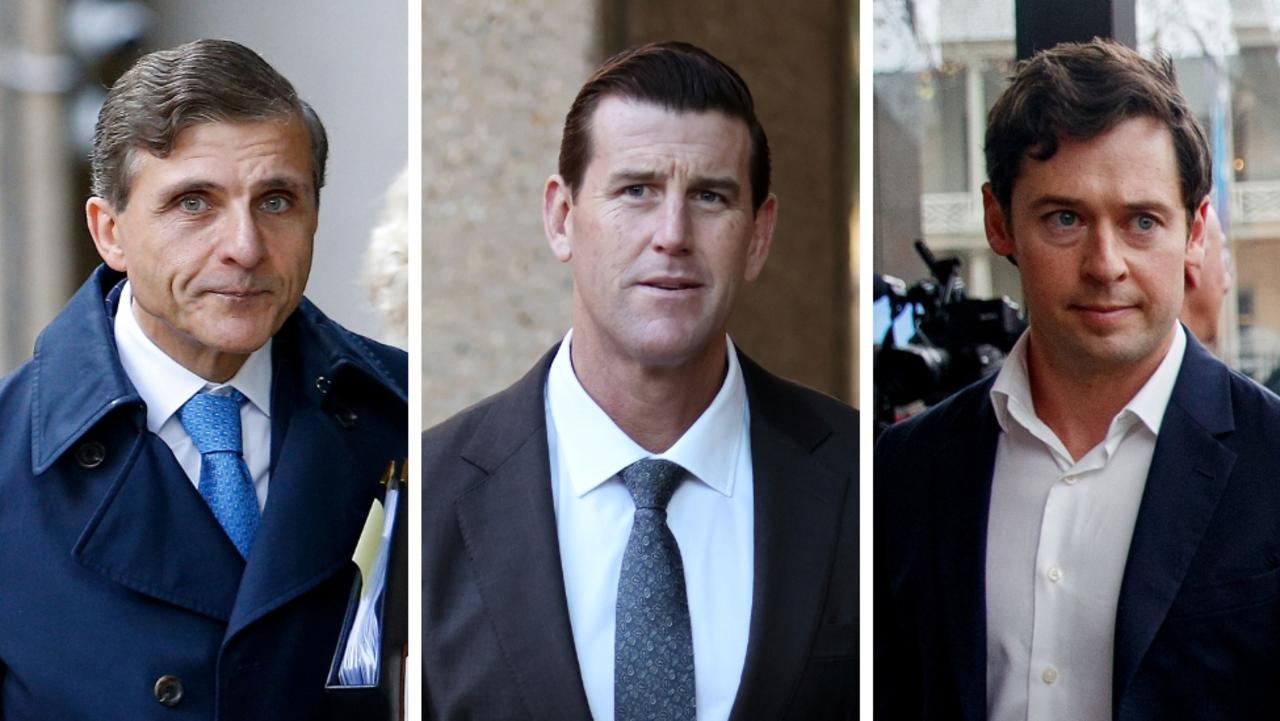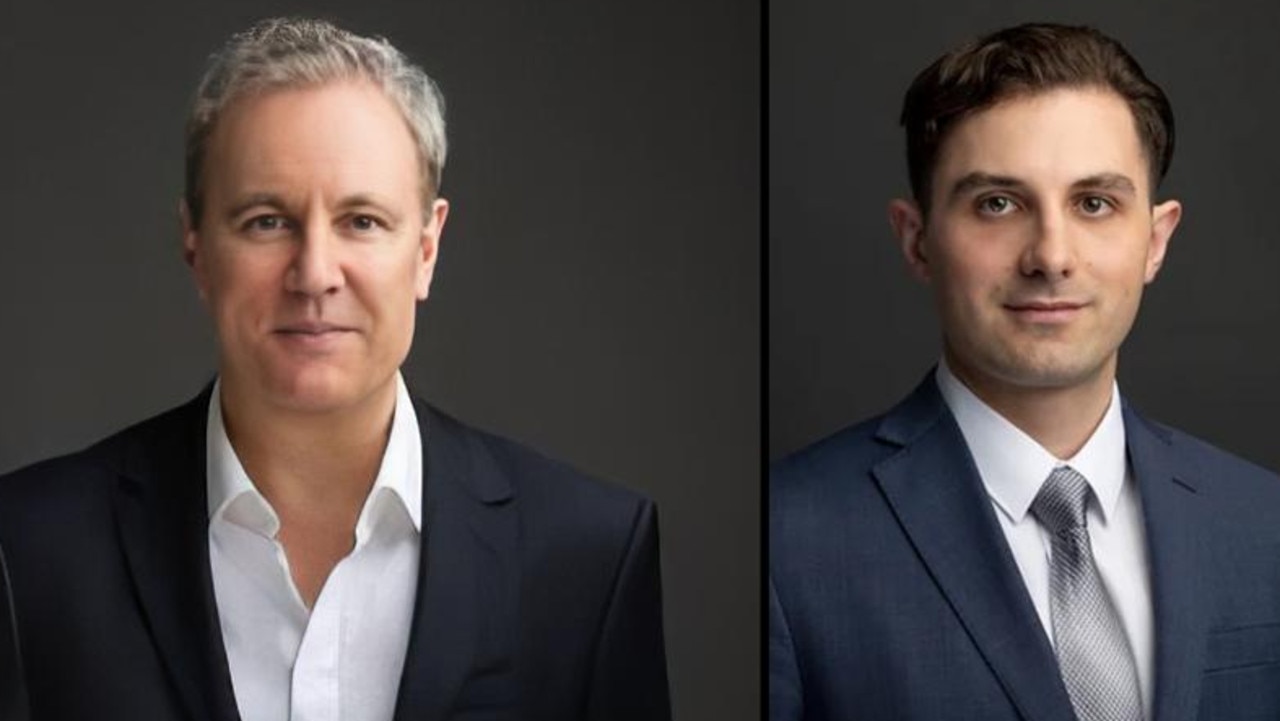Vaughan Bowen insider trading trial witness exercised right against self-incrimination
A court ruled prosecutors were not allowed to compel a key witness to give evidence in an insider trading trial because she wished to exercise her right against self-incrimination.
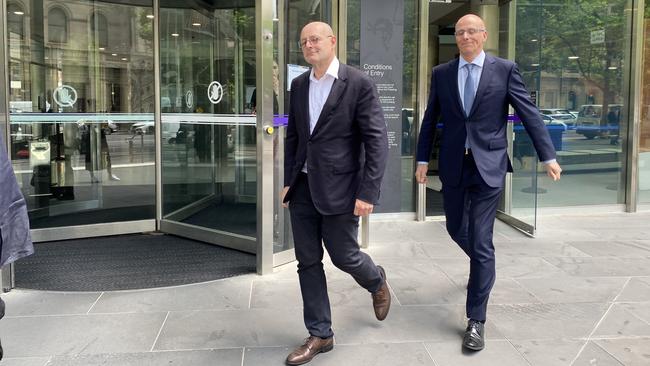
A court ruled prosecutors were not allowed to compel one of their “central” witnesses to give evidence in an insider trading trial because she wished to exercise her right against self-incrimination, before they lost their criminal case against an ex-telco chief.
Former Vocus chairman Vaughan Bowen was acquitted and found not guilty by a jury in Melbourne’s County Court of two charges of insider trading late last year, after the corporate cop alleged he used inside information to make about $25m from the sale of shares in the company in 2019.
Mr Bowen allegedly discovered a deal from EQT Infrastructure to acquire the ASX-listed Vocus had collapsed, while he was at lunch with former Vocus general counsel, Ashe-Lee Jegathesan, at popular Melbourne restaurant Lucy Liu on June 4, 2019.
The Commonwealth Director of Public Prosecutions claimed Ms Jegathesan found out the deal had fallen through while she was at lunch with Mr Bowen. Shortly after Ms Jegathesan ended a meeting about the deal, Mr Bowen was alleged to have made the trades.
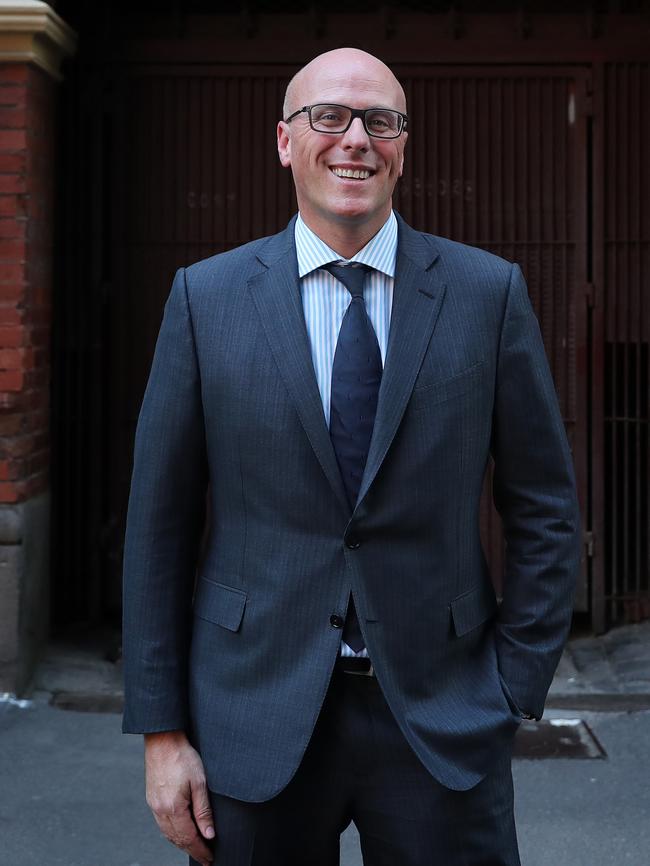
Without Ms Jegathesan’s direct input, the CDPP could only imply Mr Bowen got the information from her as he denied the allegations entirely and challenged “whether and when” he was even with Ms Jegathesan at Lucy Liu.
It can now be revealed that Ms Jegathesan, who has never been charged with anything relating to the case, wished to claim privilege against self-incrimination and indicated she would have refused to answer questions in front of a jury if compelled to do so.
County Court judge Fiona Todd released a judgment on Thursday outlining her reasons as to why she refused to allow the CDPP to compel Ms Jegathesan to give pre-trial evidence ahead of possible testimony in front of a jury.
“Ms Jegathesan has consistently maintained that she would be willing to provide a statement and give evidence in these proceedings if granted an immunity from prosecution,” Judge Todd said in her judgment.
Judge Todd accepted that Ms Jegathesan’s evidence “may be of great significance in the trial”.
“The prosecutor also argued that Ms Jegathesan’s evidence would be harnessed to prosecute serious offences, involving a lot of money, and the offending is of a kind which I infer, has the potential to undermine the integrity and operation of financial markets,” she said.
And while Ms Jegathesan has never been charged, Judge Todd said: “It is clear that at an earlier stage, she was considered a suspect.”
But the CDPP declined to offer Ms Jegathesan “unconditional immunity from prosecution”, Judge Todd said.
“It is not possible for me to predict with any confidence whether Ms Jegathesan is to be charged. She is now in a dusky position somewhere between ‘suspect’, ‘would likely have been charged by now’ and ‘not granted unconditional immunity’,” she said.
“I can say that on the facts as currently before me, she is vulnerable to prosecution for serious charges which carry significant terms of imprisonment, and her answers to questions in evidence would put her into an irrevocable and ‘radically altered’ relationship to any future prosecution case against her.”

The Australian attempted to contact Ms Jegathesan via LinkedIn, but she did not respond.
The CDPP initially said they would grant her the protection of a certificate that promised evidence she gave “cannot be used against the person”.
But Judge Todd said she was not satisfied the certificate preserved Ms Jegathesan’s right “not to incriminate herself to a sufficient degree”.
“Ms Jegathesan is clearly a central witness to the events giving rise to Mr Bowen’s prosecution,” Judge Todd said in her judgment, dated June 21.
“Her evidence has the potential to make what is currently a circumstantial case into one proved by direct evidence,” she said.
“She is said to be the source of the ‘inside information’ applied by Mr Bowen.”
Delivering his closing submissions in the criminal trial, Neil Clelland KC told the jury Ms Jegathesan was an “obvious missing piece of evidence”.
“Ashe-Lee Jegathesan … was ever present in the trial and yet you never heard from her,” he said.
Judge Todd said Ms Jegathesan already agreed to give “an account in a voluntary interview” with the Australian Securities and Investments Commission on January 31, 2020.
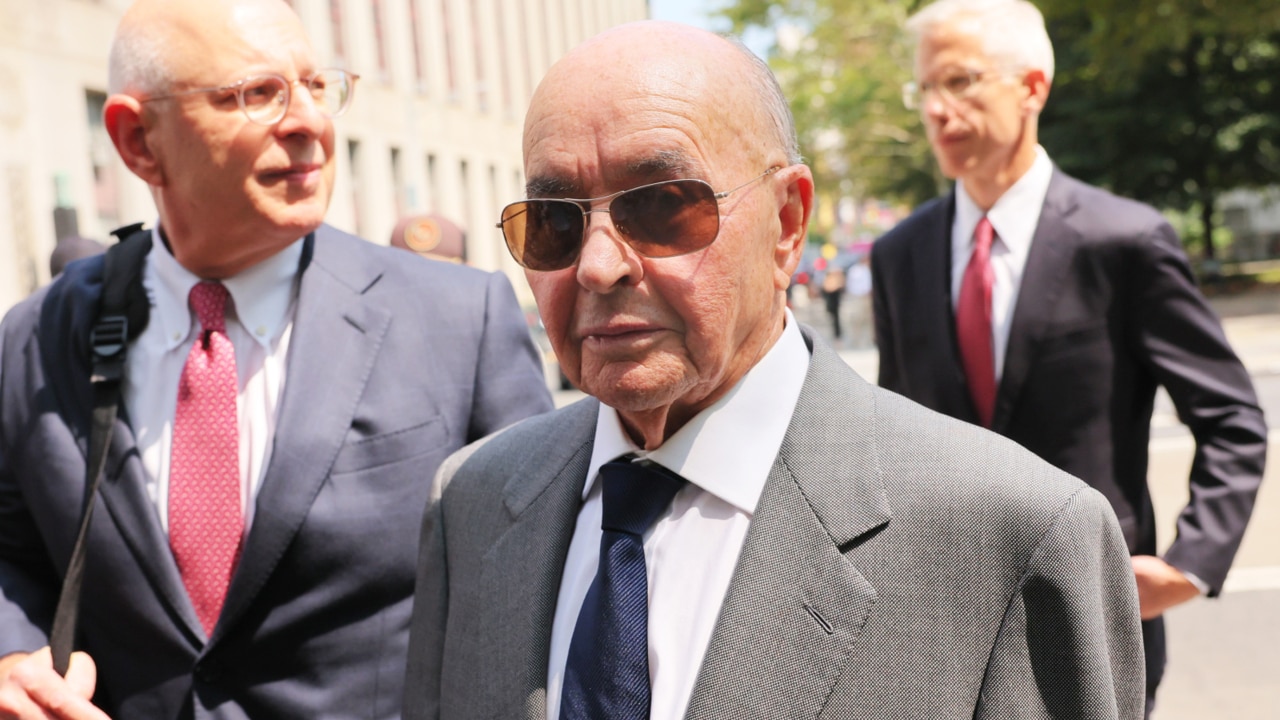
And while ASIC had the power to, it did not then compel her to participate in an examination. It’s understood ASIC did not compel Ms Jegathesan under s19 of the Corporations Act as it obtained the information necessary for its investigation during a voluntary interview.
ASIC then asked Ms Jegathesan to give a statement in October 2021, but she declined.
In 2022, a Melbourne Magistrates Court order was granted for her compulsory examination but set aside on the basis that it was not in the interests of justice “to compel Ms Jegathesan to answer questions that may cause Ms Jegathesan to incriminate herself”.
A letter from ASIC to Ms Jegathesan dated May 6 last year indicated that “consideration has been given to the possibility of granting Ms Jegathesan an immunity from prosecution, but further consideration of this is conditional upon Ms Jegathesan participating in an interview with ASIC and providing an ‘induced statement’.”
And Judge Todd ruled out “cold” calling Ms Jegathesan to give evidence before a jury without hearing her evidence in advance.
“She foreshadows an intention to refuse to answer questions,” she said.
During the trial, the jury heard Ms Jegathesan previously told ASIC that she did not tell Mr Bowen that EQT’s deal was not proceeding or that it was likely not to proceed.
Mr Bowen, through his lawyer Baker McKenzie’s Alex Wolff, declined to comment. ASIC also declined to comment.




